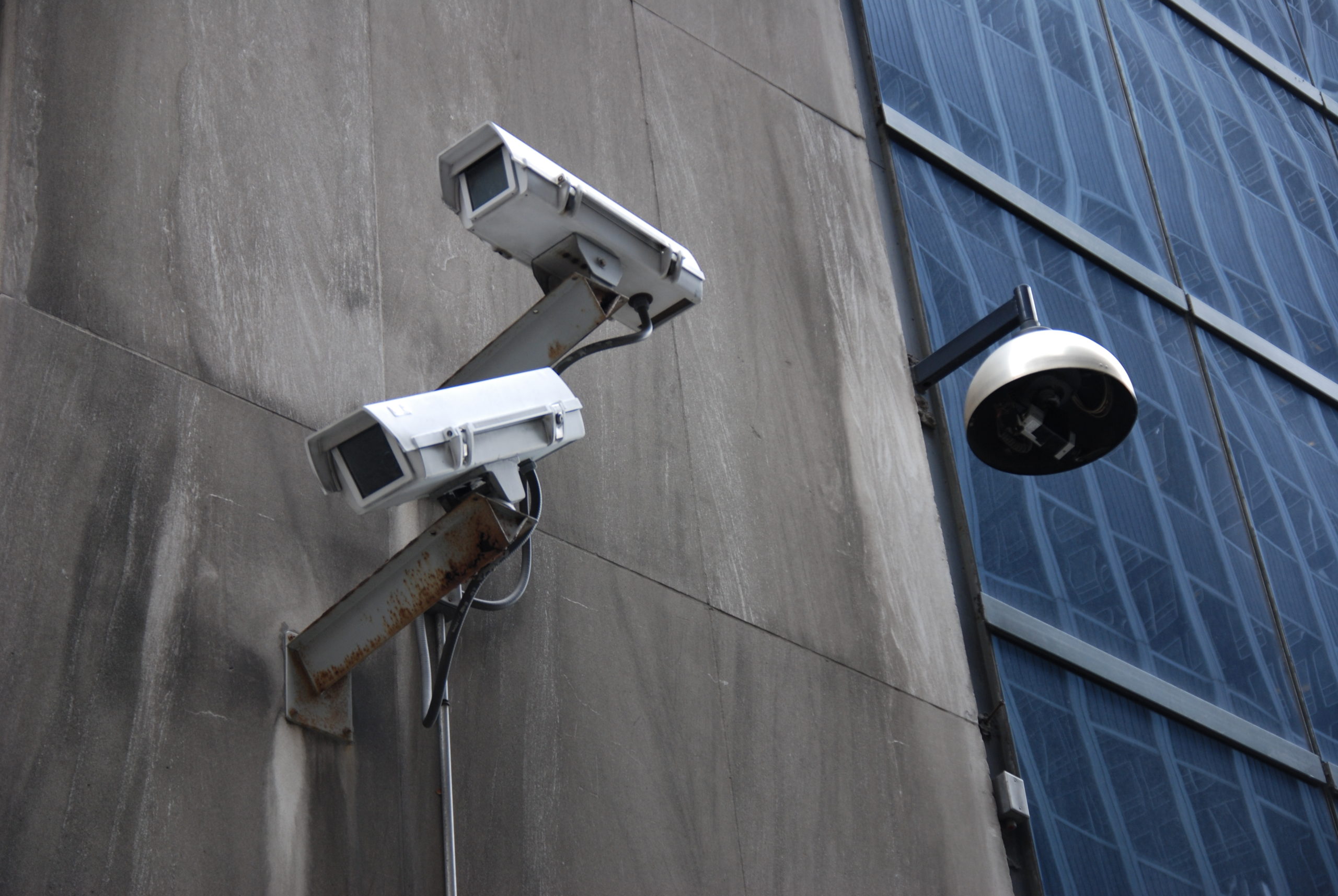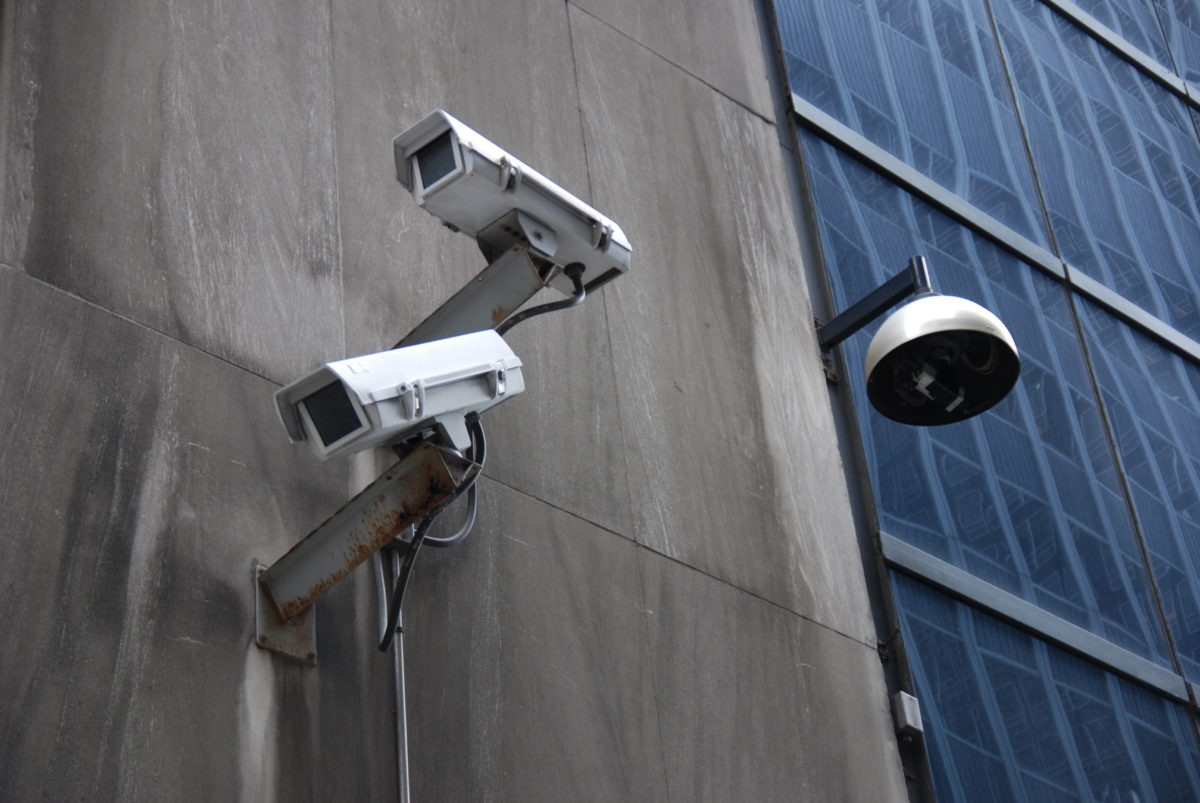Newsletter
Police Surveillance Firms Are Just Data-Brokers by Another Name
ShotSpotter, Flock Safety, and Fog Data Science pitch themselves as third-party public-safety platforms, but they really are are “data brokers”—companies that profit by selling bulk information to others.


Police Surveillance Firms Are Just Data-Brokers by Another Name
by Edward Vogel
As a Detroit City Council meeting dragged on in late September 2022, Detroit’s chief of police, James E. White, grew exasperated. City council members, police officials, and residents had for weeks debated allocating $7 million of Detroit’s funds from the American Rescue Plan—the $1.9 trillion federal COVID-19 relief stimulus passed in 2021—to pay for an expansion of the city’s contract with ShotSpotter, a company that claims to reduce gun violence by installing gunshot-detection microphones in typically low-income neighborhoods.
Frustrated by the prolonged blowback, White eventually spoke up at the meeting and described ShotSpotter as “nothing but an investigative lead. It has no video. It has no voice recordings. It responds to the percussion of a gunshot, period.” While Chief White thought he was proving that ShotSpotter is not a tool for mass surveillance, his testimony revealed what many had been saying for weeks: that the company’s microphones do little other than record entire—often Black, brown, and poor—neighborhoods on the police’s behalf.
In other words, while companies like ShotSpotter, license-plate-reader operator Flock Safety, and cell-phone tracker Fog Data Science pitch themselves as third-party public-safety platforms, what they really are are “data brokers”—companies that do little other than profit by selling bulk information to others. And they’re taking local governments for a ride.
Data-brokerage firms have proliferated since the dawn of the internet and social media. These companies—often without a person’s knowledge—harvest identifying information from the internet and other sources in order to sell it to companies or businesses. Critics have called the practice invasive and rife with possibilities for abuse, and some states have begun to regulate the practice. Vermont and California have each created registries for all brokers operating in those states and passed some rudimentary restrictions on how brokers can operate. Law enforcement agents have also begun working heavily with data firms—so much so that when the U.S. Congress considered a data privacy bill last year, brokerage firms claimed the bill would harm their ability to work with police.
But in many cases, these companies do little for law enforcement other than aggregate raw data. ShotSpotter, for example, covers neighborhoods with microphones that detect all sounds over 120 decibels. If a computer and a person believe that a sound could possibly be a gunshot, a police officer is typically deployed to the area. The company makes money by collecting information about loud sounds and selling it to police departments.
Similarly, Flock Safety, an Atlanta-based startup founded in 2017, sells automatic license plate reader (ALPR) cameras to police departments and homeowners associations. Flock uses their cameras to track and trace anyone who happens to be driving through designated areas.
Like ShotSpotter, Flock has raised millions by arguing that its style of always-on surveillance can help solve crime even though there is little evidence proving this is true. According to Vallejo, CA’s Flock Safety Transparency portal, there were more than 400,000 vehicles identified by the company’s cameras in the first 30 days of 2023. Of these, only 4,490—only about 1 percent—lit up the “hot list” of numbers to watch. This data is also murky: police typically provide little transparency as to why plates are added to a “hot list,” and there are few stories of crimes solved due to data collected by these cameras. Flock is building a privately-owned map of millions of drivers’ locations without demonstrating that this data does much but pad their bottom line.
Another firm, Fog Data Science, acts as a broker for cell phone data. As documented by the Electronic Frontier Foundation (EFF), Fog Data Science purchases cell phone location data, which the company then packages for sale to police and homeland security agencies. This data can be searched and specific phones can be traced and geolocated through a user-friendly interface. In its marketing materials, the company states it has billions of data points from over 250 million devices dating back to 2017.
Profitability requires dragnet surveillance to build larger datasets, and there is no business incentive for these companies to dam their profit stream. And the people best positioned to reel these companies in rarely do so. Police and elected officials who are considering contracts rarely request evidence that the technologies actually deliver on the marketing promises made by the companies and seldom inquire if the tools can address the systemic causes of violence and crime. When pressed, the best that pro-surveillance technology advocates like Chief White can often do is fearmonger about what will happen if police do not have access to these tools while offering scant concrete evidence that they actually improve community safety. Law enforcement data brokers are not able to address the root causes of crime, only to profit from mass data collection. These firms deserve to be treated like the brokers they are—and communities impacted by violence deserve better than to have their trauma turned into profit.
In the news
On Jan. 7, Memphis police officers stopped Tyre Nichols, a 29-year-old Black man, while he was driving home. He lived with his stepfather and mother, who was making sesame seed chicken for dinner.
Less than 300 feet from home, several police officers mercilessly attacked him. He died from his injuries three days later.
Five Black officers—Tadarrius Bean, Demetrius Haley, Emmitt Martin III, Desmond Mills Jr., and Justin Smith—have been fired and charged with, among other offenses, second-degree murder and aggravated kidnapping.
The officers were a part of the SCORPION unit, which stands for Street Crimes Operation to Restore Peace in Our Neighborhoods.
Civil rights attorney Benjamin Crump, who is representing Nichols’s family, told the New York Times that shortly before Nichols’s death, officers with the unit had beaten a 66-year-old man and pointed a gun at another man who was driving to pick up a pizza.
After video footage of the attack on Nichols was made public, Police Director Cerelyn “CJ” Davis disbanded the unit.
A sixth officer, Preston Hemphill, who is white, has been “relieved of duty,” but not criminally charged or terminated, according to news reports. He used his taser and twice said, “I hope they stomp his ass,” ABC News reported.
Last July, Hemphill completed 40 hours of training to join the Memphis Police Crisis Intervention Team, the Daily Beast reported.
A seventh officer was “relieved of duty,” but has not been publicly named.
Nichols was a photographer, skateboarder, and father. On the day the police attacked him, he was coming home after taking photographs of the sky.
“Photography helps me look at the world in a more creative way,” he had written on his photography website. “It expresses me in ways i cannot write down for people… I hope to one day let people see what i see.”
ICYMI — from The Appeal
Sentenced as a teen to die in prison, Cordell Miller earned a second chance under a DC sentencing reform law. In Part 1 of this three-part series, Sylvia A. Harvey tracks Miller’s path from Jamaica, to New York City, to the nation’s capital. Co-published with The Imprint News.
Adam Rhodes was on WNYC’s The Brian Lehrer Show to discuss their recent reporting about New Jersey’s rollback of protections for incarcerated trans people. Adam’s story breaks down the transphobia and tabloid coverage that helped prompt the prison policy change.
Tyre Nichols case has everything to do with race, writes Ieshaah Murphy. That Black officers can also be the face of police brutality against Black people doesn’t disprove the racism at the institution’s core. It only reveals a system of policing so deeply defined by anti-Black racism that even Black officers can find themselves actively perpetuating it.
That’s all for this week. As always, feel free to leave us some feedback, and if you want to invest in the future of The Appeal, donate here.
